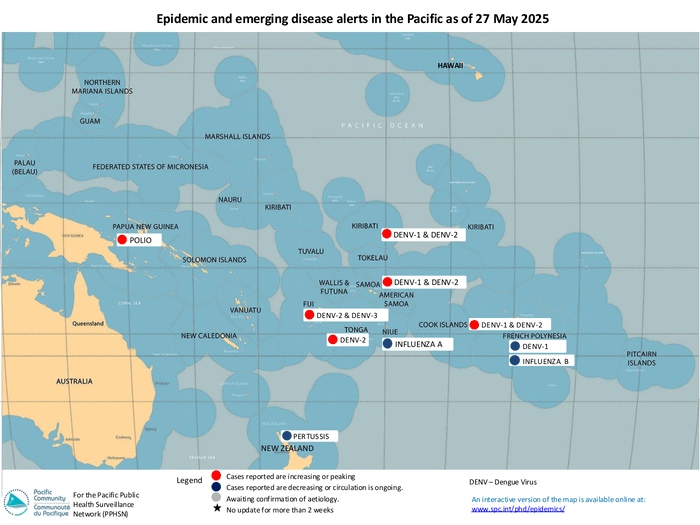Understanding the Cook Islands Dengue Fever Outbreak

Introduction
The recent outbreak of dengue fever in the Cook Islands has garnered significant attention due to its impact on public health and tourism in the region. With rising temperatures and changing weather patterns, the prevalence of mosquito-borne diseases like dengue fever has become a pressing concern for both local authorities and international health organizations. The importance of understanding this outbreak lies in its potential implications for community health and the nation’s economy, which heavily relies on tourism.
The Outbreak Details
The Cook Islands Ministry of Health reported an increase in dengue fever cases earlier this month, prompting immediate action to address the situation. As of October 2023, the number of confirmed cases has surged past 200, with the most affected islands being Rarotonga and Aitutaki. Health officials have confirmed that the outbreak is caused by the dengue virus serotype 2, which is known for its severity compared to other types.
In response, public health campaigns have been initiated to educate residents and visitors about the symptoms of dengue fever, which include high fever, severe headaches, joint and muscle pain, skin rash, and mild bleeding. Additionally, health teams have been deployed to inspect and eliminate mosquito breeding sites, such as standing water in containers, tires, and other locations.
Community Impact and Response
The implications of the dengue outbreak extend beyond health concerns. As a primary tourist destination, the Cook Islands has seen a decline in visitor numbers due to fears surrounding the outbreak. Local businesses, particularly those in the hospitality sector, are worried about the potential downturn in tourism, which is vital for the economy. In a recent statement, the Cook Islands Tourism Corporation emphasized the importance of addressing the health crisis promptly to restore confidence among travelers.
Conclusion
The dengue fever outbreak in the Cook Islands serves as a critical reminder of the need for robust public health measures and community awareness to combat mosquito-borne diseases. As the government and health officials work diligently to control the outbreak, it is crucial for residents and tourists alike to stay informed and take precautions to protect themselves. Looking ahead, sustained efforts in health education and vector control will be essential in mitigating the impacts of this and future outbreaks, ensuring the health and safety of the Cook Islands’ population and its visitors.









